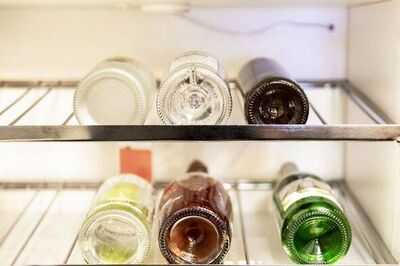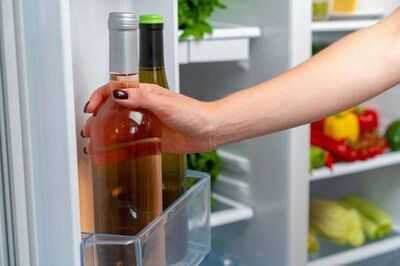Storing wine at home might appear straightforward, with whites destined for the fridge and reds tucked away in kitchen cupboards. Yet wine connoisseurs caution that it's far from being this straightforward, warning that improper storage can result in your wine deteriorating or acquiring a sharp, acidic flavour.
Colin Simpson, wine specialist at Into the Vineyard, has revealed that whilst most individuals keep wine standing upright in the refrigerator for weeks on end, this approach can actually cause the cork to dry out and spoil the flavour.
Even the tiniest mistake can compromise your bottle's quality, Colin reveals: "Wine is remarkably resilient, but proper storage makes a real difference, especially when it comes to the cork.
- 'I worked in fish and chip shops for five years - there's one menu item I'd never order'
- Tom Kerridge's sausages and mash is 'tastier' thanks to 1 seasonal ingredient
"A dry cork can shrink, letting oxygen seep into the bottle and accelerating chemical reactions that can spoil flavour and aroma. Keeping the bottle on its side maintains contact between wine and cork, helping preserve the balance of acids, tannins, and other compounds that give wine its character."
 Common wine storage blunders.
Common wine storage blunders. One frequent blunder involves keeping your bottles in locations where they'll encounter sudden, severe, or regular temperature fluctuations.
Persistent or dramatic temperature variations can force the cork outward, trigger leakage, or essentially cook the flavours. Additionally, wine should never be kept below 7°C for extended periods.
Whilst the refrigerator works brilliantly for storing wine you'll consume shortly, it shouldn't be utilised for any considerable duration.
Extended cold spells may cause the cork to dry out, permitting air to seep in and potentially ruining the wine. Chilly storage conditions can also lead to moisture build-up on labels or bottles.
Another storage trick that numerous wine enthusiasts might not be aware of is that corked bottles ought to be kept horizontally rather than standing upright, as maintaining cork contact with the wine prevents drying and unwanted oxygen infiltration.

Wine must be shielded from UV rays and harsh lighting, as exposure can deteriorate both quality and flavour over time. Bearing this in mind, Colin recommends purchasing a wine fridge where feasible.
He explained: "The three critical components for proper ageing are temperature control, darkness, and humidity. A wine fridge offers all three, protecting your investment."
Keeping wine in your standard kitchen refrigerator can result in bottles being regularly jolted or subjected to vibrations, which may disturb sediments and adversely impact taste.
Colin notes that wine fridges featuring controlled humidity levels are perfect for extended storage. Keeping wine in arid environments can cause cork shrinkage and oxygen infiltration, whilst excessive moisture can stifle proper maturation.
You ought to also track the vintage and consumption periods of your bottles, as even properly stored wines possess ideal drinking timeframes. Consuming within this window ensures you'll savour your wine at its finest quality.
You may also like

Panic in Spain as country 'abandoned' by French and German tourists

Ruben Amorim's message to Man Utd dressing room after Sunderland win speaks volumes

Billie Eilish grabbed and dragged to floor by fan in shocking concert incident

Busy techie missed father's last call, only to regret it later. His dad died on the same day. He also missed his mother's 20 calls

Football: Suhail Bhat fires India U23 to victory against hosts Indonesia in first friendly






